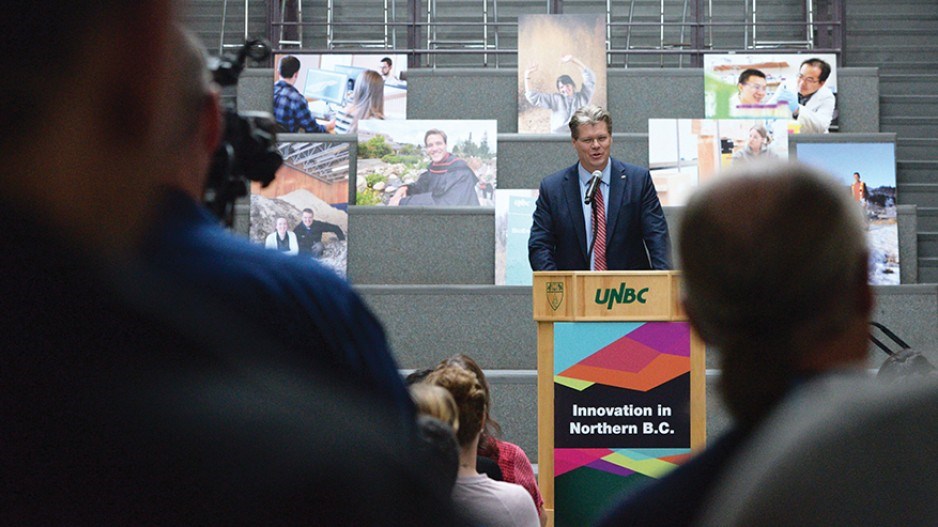The provincial and federal governments might not see eye to eye on pipelines, but one thing they can agree on is that it’s time to bet on northern B.C.’s tech industry.
Both levels of government are investing in the province’s north to help develop the region’s talent and industries.
Last week the federal government announced that a B.C. consortium of businesses and post-secondary institutions would receive funding to set up Canada’s Digital Technology Supercluster. The consortium’s objective is to foster co-operation between academic institutions, government and the private sector with the goal of digitizing traditional industries.
While companies like Microsoft (Nasdaq:MSFT) stole the headlines for their participation in the supercluster, well-established companies and institutions across B.C.’s north are quietly participating in the background. Companies like Teck Resources Ltd. (TSX:TECK.B) and Canfor (TSX:CFP) are partnering with the University of Northern British Columbia (UNBC) and hundreds of other private and institutional partners to find solutions to challenges faced by traditional industries.
The collaboration will focus on using data analytics to improve productivity, safety and environmental performance, Greg Brouwer, Teck’s general manager of technology and innovation, said in a press release.
One of the digital technology supercluster’s major projects, aimed at northern B.C.’s resource industry, is the Earth Data Store. The project seeks to create a daily digital replica of most of the earth’s surface to create a single source of geographic data for resource companies. With 57% of the world’s public mining companies being traded on the Toronto Stock Exchange, it makes sense that the innovation would come from Canada.
Private industry players see the supercluster as an opportunity for digital technology to improve the sustainability and productivity of traditional resource industries. However, it could also act as a retention program, keeping skilled talent in the region.
“A lot of our graduates stay in the north, get involved in leadership positions within the industries here in the north,” said Geoff Payne, UNBC’s interim vice-president of research and graduate programs. “This will be a catalyst to continue to drive the economic development within the region.”
Sixty-nine per cent of the students who attend UNBC continue to live and work in northern B.C., according to a report from the Research Universities’ Council of British Columbia.
Payne said the supercluster partnership between industry and post-secondary institutions benefits students and industry. Students can make connections with some of the province’s leading companies and industry benefits from students gaining practical skills that are not taught in the classroom.
The federal government is not the only one betting big on the budding tech industry outside of the Lower Mainland. The provincial government has invested roughly $1 million in science, technology, engineering and math (STEM) programs in the province’s north and in the Interior. UNBC and the College of New Caledonia received a combined $650,000 to create 330 engineering spaces across the two post-secondary institutions.
“One of the big things that we’ve noticed in a couple of different programs is how important the education in the north is to encourage students to stay in the north,” said Dan Ryan, provost and vice-president, academic, at UNBC.
Ryan told the story of a Prince George company that found when it hired accountants from the Lower Mainland, they often wouldn’t stay, but it had less problem with turnover when it hired students from UNBC. As a result, the company switched to recruiting students solely from the north, and it eventually sold the business to UNBC students.
Training and educating students in the north is a key part to keeping talent there, said Paul Bowles, professor of economics at UNBC.




